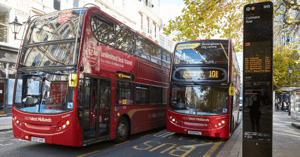On October 23, Huawei and Navigant Consulting released the 2nd "UK Smart Cities Index - Assessment of Strategy and Execution of UK’s Leading Smart Cities". The report features an assessment of 20 UK cities in their efforts to utilize technology to address urban challenges and seize development opportunities.
Bristol and London are the UK's smartest cities
Surprisingly, Bristol has been announced as the leading smart city in the UK, followed by London. The two cities are spearheading the movement, well ahead of the other 18 cities that were analyzed in the report.
They are adopting smart solutions faster and more efficiently than other cities. The closest 12 "contenders" identified in the report are Manchester, Birmingham, Leeds, Milton Keynes, Glasgow, Nottingham, Peterborough, Cambridge, Oxford, Aberdeen, Edinburgh, and Newcastle.
Success factors of leading cities
The index report sheds light on the determinants of success. Besides the speed and efficiency of adopting smart solutions or technology, several other factors are critical for success:
- strong governance of strategy and projects (e.g. CIO / CDO appointment or establishment of a hub as operations centre; backing by the Mayor)
- a decisive move into new & connected technology to deliver government services or to improve the urban environment (pilot projects and the integration of successful projects into day-to-day operations)
- the close collaboration of the public and private sector, with universities and the engagement of the community (citizens) in projects
- following a holistic approach and consolidating links of projects/solutions with broader social and economic goals
Challenges for developing smart cities
However, the report also identified challenges for cities that want to become smarter. The main challenges are:
- budgetary constraints (new funding sources need to be acquired for implementing projects & solutions)
- effective risk management (pilot projects first, then full-scale implementation)
- cultural shift (away from siloed thinking & working in government authorities, open innovation culture, acceptance of new solutions & technology)
- need to improve the digital infrastructure (e.g. citywide connectivity, preparing for 5G, data platforms & machine learning, autonomous driving)
Summarizing the Index Report 2017 compared to the report of 2016, it can be stated that cities in the UK are stepping up their efforts to optimize government services aimed at increasing the quality of life and prosperity for their citizens and strengthening the economy.
We support cities & municipalities in their journey to become smart & sustainable
We support cities and communities in a holistic approach from smart city concept and strategy development up to preparing funding applications and the implementation of smart city strategies and corresponding solutions. Do not hesitate to contact us to learn more about our services. We look forward to speaking with you.


